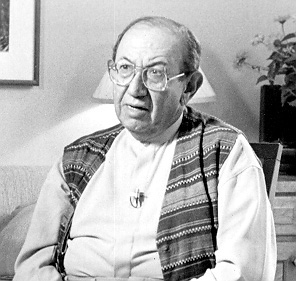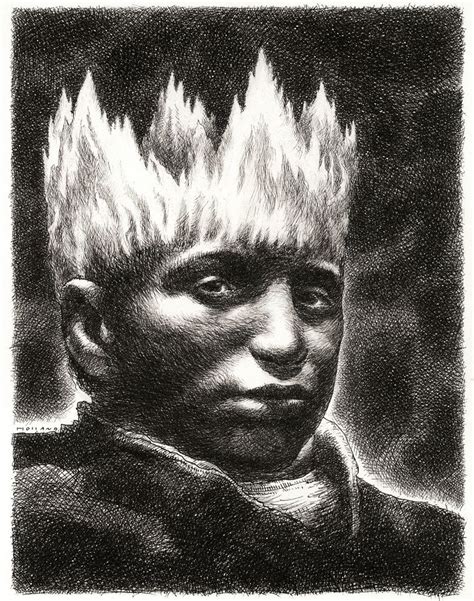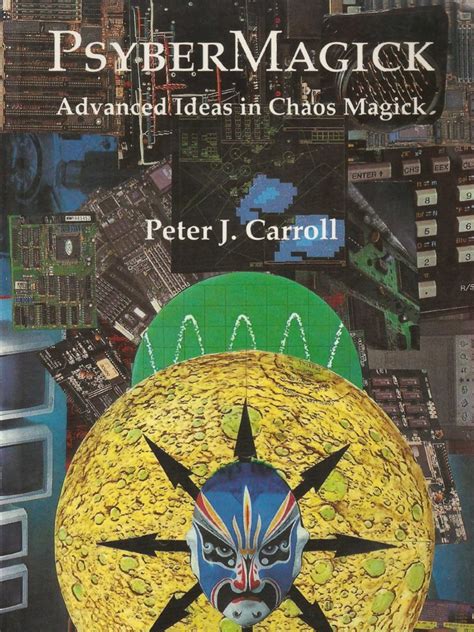Top 87 Psychosis Quotes & Sayings - Page 2
Explore popular Psychosis quotes.
Last updated on December 22, 2024.
I was never the sort of child who believed in "monsters under the bed" or vampires, or who needed a night-light in his bedroom; on the contrary, my father...once laughingly told my mother that he thought I might suffer from a type of benign psychosis called "antiparanoia," in which I seemed to believe that I was the object of an intricate universal conspiracy to make me so happy I could hardly stand it.
LSD was not a pharmacological agent generating exotic experiences by its interaction with the neurophysiological processes in the brain. This remarkable substance was clearly an unspecific catalyst of the deep dynamics of the human psyche. The experiences induced by it were not neurochemical artifacts, symptoms of a toxic psychosis as mainstream psychiatrists called it, but genuine manifestations of the human psyche itself.
We have a lot of things, you know, as a medical professional, we have to start looking at, some of the, particularly, the transgender issue has to be looked at in the psychotic - the psychosis in regards to the medical community and looking at that application because there's a lot of mixed studies in those regards.
Along with supernature and science, there is one other major source of horror movies disorder: the human psyche, most commonly homicidal psychosis. Unlike 'mad' scientists, horror-movies madmen are not visionary obsessives, glorifying in scientific reason as they single-mindedly purse their researches. They are, rather, victims of overpowering impulses that well up from within; monsters brought forth by the sleep of reason, not by its attractions.
Not me," said Orion cheerily. "I'm just a teenager with hormones running wild. And may I say ,young fairy lady, they're running wild in your direction." Holly lifted her visor and looked the hormonal teenager in the eye. "This had better not be a game, Artemis. If you do not have some serious psychosis, you will be sorry." "Oh, I'm crazy, alright. I do have plenty of psychoses," said Orion Cheerily. "Multiple personality, delusional dementia, OCD. I've got them all, but most of all, I'm crazy about you.
Christianity was created by some decadent and degenerated Romans as a tool of oppression, in the late Roman era, and it should be treated accordingly. It is like handcuffs to the mind and spirit and is nothing but destructive to mankind. In fact I don't really see Christianity as a religion. It is more like a spiritual plague, a mass psychosis, and it should first and foremost be treated as a problem to be solved by the medical science. Christianity is a diagnosis. It's like Islam and the other Asian religions, a HIV/AIDS of the spirit and mind.
The devil is no fool. He can get people feeling about heaven the way they ought to feel about hell. He can make them fear the means of grace the way they do not fear sin. And he does so, not by light but by obscurity, not by realities but by shadows; not by clarity and substance, but by dreams and the creatures of psychosis. And men are so poor in intellect that a few cold chills down their spine will be enough to keep them from ever finding out the truth about anything.
I spent months searching for some secret code before I realized that common sense has nothing to do with it. Hysteria, psychosis, torture, depression: I was told that if something is unpleasant it's probably feminine. This encouraged me, but the theory was blown by such masculine nouns as murder, toothache, and rollerblade. I have no problem learning the words themselves, it's the sexes that trip me up and refuse to stick.
I think when people try to use their art for political views, I think they're art becomes smaller, less interesting. And so for me, as an artist, I'm trying to speak about things in a universal way and not be pedantic or small-minded and try to convince other people of my political views. But having said that, every day I live in sort of complete terror because of what I read in the newspaper and what is going on in the world. I'm constantly, as I think many of us are, overwhelmed by the sort of, mass psychosis that's occurring.
There is also evidence from epidemiological studies that psychotic-like experiences are much more common than has hitherto been thought (with about 10% of the population affected) and that these experiences exist on continua with healthy or 'normal' functioning: instead of the world falling into two groups (the psychotic and the non-psychotic) people vary in their disposition to psychosis and only a minority of people who have these experiences require or seek help.
Psychoanalytic categories such as "neurosis", "psychosis", "mania", and "fixation" have become part of our everyday psychological vocabulary and we now routinely interpret states of anxiety, excitement, or depression in terms of physiological factors involving levels of serotonin, adrenalin, or blood sugar. To say that the characterization of thinking has a normative function that is irreducible to neurophysiological processing is not to say that our extant classification of the forms of thinking is incorrigible.
Most people think spies are afraid of guns, or KGB guards, or barbed wire, but in point of fact the most dangerous thing they face is paper. Papers carry secrets. Papers carry death warrants. Papers like this one, this folio with its blurry eighteen year old faked missile photographs and estimates of time/survivor curves and pervasive psychosis ratios, can give you nightmares, dragging you awake screaming in the middle of the night.
Intelligence is one of the greatest human gifts. But all too often a search for knowledge drives out the search for love. This is something else I've discovered for myself very recently. I present it to you as a hypothesis: Intelligence without the ability to give and receive affection leads to mental and moral breakdown, to neurosis, and possibly even psychosis. And I say that the mind absorbed in and involved in itself as a self-centered end, to the exclusion of human relationships, can only lead to violence and pain.
But man has other needs as well: emotional needs. These, too, are few, but every bit as important as his physical requirements, yet not so simple. If they aren't met, they can be as devastating as physical hunger, as uncomfortable as a lack of shelter, as incapacitating as thirst. The frustration, isolation and anxiety brought about by unmet emotional needs can, like physical privation, produce death or a degree of living death - neurosis and psychosis.
The similarities between street drug abuse and psychotropic prescription drug use are disturbing. Both types are toxic. Both can cause psychosis, damage the brain and other organs, and even cause death. And neither type of mind-altering drugs, legal or illegal, treats disease. It's important to recognize that the only significant difference between many prescription psychotropic drugs and street drugs such as "speed" and "downers" is that prescription drugs are legal.
The psychotic does not merely think he sees four blue bivalves with floppy wings wandering up the wall; he does see them. An hallucination is not, strictly speaking, manufactured in the brain; it is received by the brain, like any 'real' sense datum, and the patient act in response to this to-him-very-real perception of reality in as logical a way as we do to our sense data. In any way to suppose he only 'thinks he sees it' is to misunderstand totally the experience of psychosis.
The primitive thinking of the supernaturally inclined amounts to what his psychiatric colleagues call a problem, or an idea, of reference. An excess of the subjective, the ordering of the world in line with your needs, an inability to contemplate your own unimportance. In Henry's view such reasoning belongs on a spectrum at whose far end, rearing like an abandoned temple, lies psychosis.
We are repeatedly left, in other words, with no further focus than ourselves, a source from which self-pity naturally flows. Each time this happens I am struck again by the permanent impassibility of the divide. Some people who have lost a husband or a wife report feeling that person's presence, receiving that person's advice. Some report actual sightings, what Freud described in "Mourning and Melancholia" as "a clinging to the object through the medium of a hallucinatory wishful psychosis." Others describe not a visible apparition but just a "very strongly felt presence."
I have to admit that 'Psychology Today' was one of the first magazines I started reading, back when I was 13 or 14, because I was the kind of kid that was curious about the mysterious human mind - I hoped to learn about telekenisis, multiple personalities, psychosis, and various other cool and terrible things that happened inside people's heads.
Apophenia means finding pattern or meaning where others don’t. Feelings of revelation and ecstasies usually accompany it. It has some negative connotations in psychological terminology when it implies finding meaning or pattern where none exists; and some positive ones when it implies finding something important, useful or beautiful. It thus links creativity and psychosis, genius and madness.


























